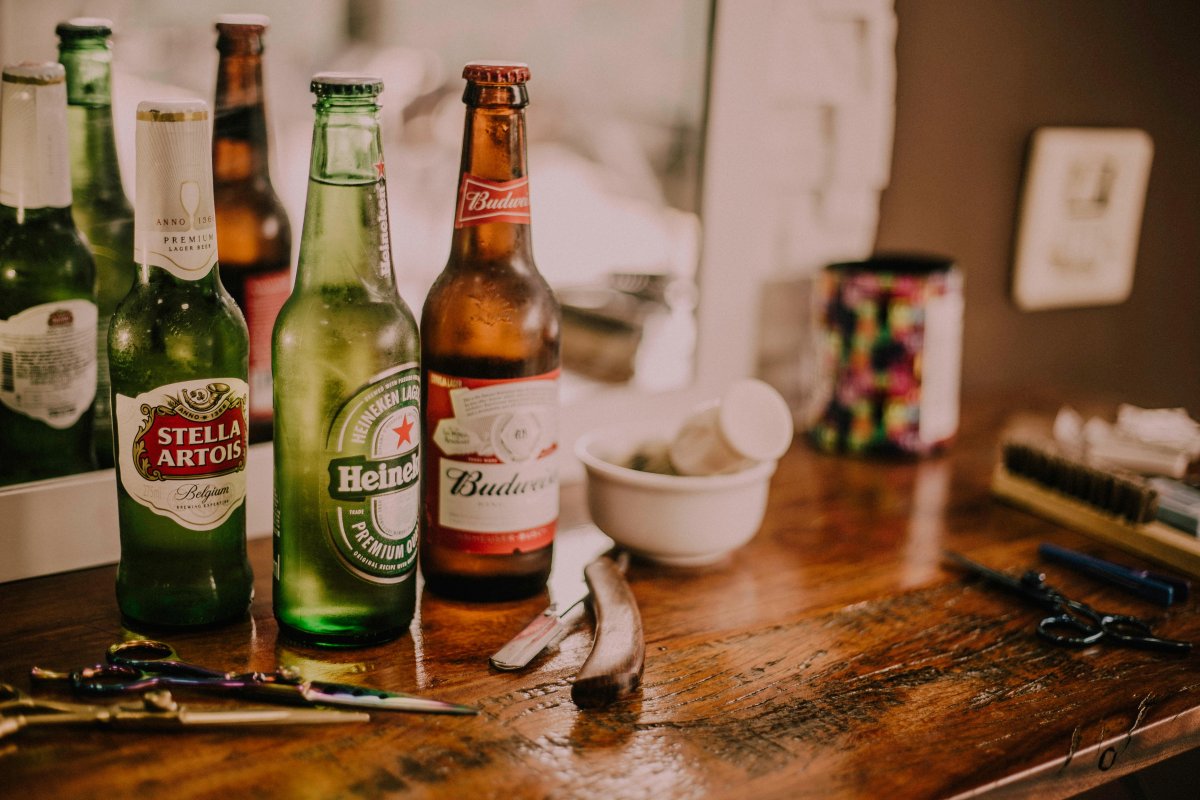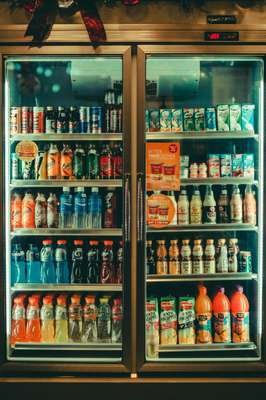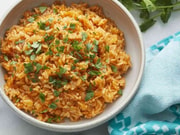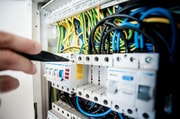
Among older Americans, a daily pour often pairs with primetime.
While this might seem like a harmless habit, cardiologists are sounding urgent warnings about a particular drink combination that's putting hearts at serious risk—and it's more common than you might think.
“Some beverages can stress the heart just as much as a salty meal.” says Dr. Cheng-Han Chen, a board-certified interventional cardiologist and medical director of the Structural Heart Program at MemorialCare Saddleback Medical Center.
The dangerous duo? Alcohol mixed with energy drinks. While this combination might sound like something only young partygoers would consume, the reality is quite different.
Many are unknowingly putting their hearts in jeopardy by combining their evening wine or beer with seemingly innocent energy drinks during social gatherings or while staying alert for evening activities.
The hidden heart danger most don't know about
Here’s a sobering fact: while awareness is growing, many Americans still don’t realize alcohol can harm the heart—despite mounting evidence that even moderate drinking raises cardiovascular risk.
This gap in awareness is especially troubling given that a vast majority of U.S. adults exceed recommended alcohol limits. While about 6% qualify as heavy drinkers, men are nearly twice as likely as women to overconsume—raising serious concerns for heart health.
Dr. Cheng-Han Chen explains that your heart doesn't distinguish between what you eat and what you drink when it comes to risk factors.
“Your diet, including the beverages you drink, plays a big part in many of the risk factors for heart disease,” he says.
What alcohol really does to your aging heart
As we age, our bodies process alcohol differently, and the risks multiply.
Drinking can be more harmful for older adults because the body is more sensitive to alcohol (for example, the liver, which processes alcohol, becomes weaker with age), increasing the chances of overdose, falls and injuries.
Dr. Leonard Pianko, a cardiologist, explains the physical process: “Alcohol goes straight into your bloodstream and makes your blood vessels relax, giving you that warm flushed feeling. As your body absorbs the alcohol, your heart has to pump harder because your vessels constrict.”
This process can trigger a spike in blood pressure and an increase in cortisol, which raises heart rate and, over time, weakens the heart muscle.
For older adults already managing conditions like high blood pressure or diabetes, these effects can be particularly dangerous.

The energy drink trap
While many seniors might think energy drinks are just for young people, they're increasingly common in mixed drinks and social settings.
In the U.S., a typical 8.4 oz energy drink packs about 80 mg of caffeine—roughly the same as a cup of instant coffee.
Dr. Cheng-Han Chen warns that energy drinks contain “a high level of stimulants such as caffeine, guarana or taurine, and potentially a large number of added sugars as well. Stimulants such as caffeine will increase heart rate and blood pressure, adding to the workload of the heart.”
Did you know? A standard drink packs more punch than you think
According to the National Institute on Alcohol Abuse and Alcoholism (NIAAA) and the CDC:
- A standard drink in the U.S. contains 14 grams of pure alcohol, which is equivalent to:
- 12 oz (355 mL) of regular beer at ~5% alcohol
- 5 oz (148 mL) of wine at ~12% alcohol
- 1.5 oz (44 mL) of distilled spirits at ~40% alcohol
The real danger emerges when these stimulant effects crash.
“When levels crash later on, the body then releases cortisol or adrenaline again, and as a result, [you] may feel palpitations, shakiness or anxiety,” warns Dr. Jossef Amirian, a cardiologist.
The fundamental problem, explains Dr. Pianko, is that you're essentially putting your heart on a rollercoaster: “When you mix the two, a stimulant and a depressant, you are confusing your heart, which can cause an arrhythmia, which is an irregular heartbeat, [and] a spike in blood pressure.”
Even more concerning is what researchers call the “wide-awake drunk” effect.
The stimulation from energy drinks can also counteract the sedative effects of alcohol, encouraging heavier and more risky drinking.
This masked intoxication can be particularly dangerous for older adults who might not recognize their impairment.
The perspective on moderate drinking
In the U.S., many older adults still believe moderate drinking benefits heart health, but newer research shows that alcohol can increase the risk of atrial fibrillation and high blood pressure, especially as we age.
Many older Americans still ask: “Isn’t moderate drinking good for the heart?” That belief stems from earlier studies, but science has evolved.
The ASPREE study—conducted with 18,000 healthy adults over 70 in the U.S. and Australia—did suggest some cardiovascular benefits from light to moderate drinking.
However, newer research shows that alcohol consumption increases the risk of atrial fibrillation and high blood pressure, especially in older adults. These conditions become more common with age, making alcohol’s impact more dangerous than many realize.
Healthier alternatives for seniors
Rather than reaching for that risky combination, cardiologists recommend several heart-friendly alternatives:
For energy boosts:
A brisk 10-minute walk around your neighborhood.
Quality sleep (7-8 hours is ideal for seniors).
Green or black tea (much less caffeine than energy drinks).
A balanced meal with fiber, protein, and healthy fats.
For stress relief and social connection:
Herbal teas like chamomile or peppermint.
Meditation or gentle yoga.
Music therapy or singing.
Warm baths.
Social activities that don't centre around alcohol.
Water remains the heart's favorite beverage. If you're looking for something with more flavor, try sparkling water with fresh lemon, lime, or berries.
Resources for heart health support
If you're concerned about your alcohol consumption or heart health, help is readily available:
American Heart Association (AHA) – heart.org
Trusted resources on heart disease prevention, healthy lifestyle tips, and managing cardiovascular risk.
Your Primary Care Provider
Can assess your individual heart health and guide you on safe alcohol use based on your age, medications, and medical history.
Substance Abuse and Mental Health Services Administration (SAMHSA) – 1-800-662-HELP (4357)
A free, confidential helpline offering 24/7 support for alcohol and substance use concerns—for you or someone you care about.
Also Read: Six everyday foods and drinks dietitians say you may want to rethink after 30
Taking action for your heart
The evidence is clear: combining alcohol and energy drinks creates unnecessary risks for your heart, especially as you age. The good news is that your heart can benefit from positive changes at any age.
By adopting a heart-healthy lifestyle and seeking regular medical care, seniors can significantly reduce their risk of heart disease and enjoy a fulfilling, active life well into their golden years.
If you currently enjoy alcoholic beverages, consider talking with your primary care provider at your next check-up. They can help assess your personal health risks—like heart disease, high blood pressure, or medication interactions—and guide you toward the safest approach for your age and lifestyle.






